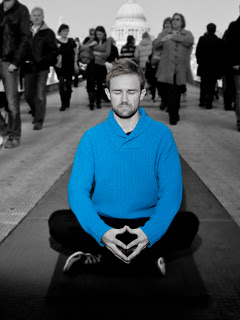Mediate Before You Meditate
By Sutapa Das | Апр 26, 2013

Human relationships are riddled with argument, quarrel and conflict. It’s a symptom of the age. But that’s not a problem per se, since every disagreement is pregnant with positive and negative potential. Differences of opinion can bring enlightenment, transformation, wisdom and growth – they can also be the cause of anger, frustration, resentment, and bad feeling. Developing progressive responses in argumentative situations can be a liberating experience. Here are some tips:
Tolerance – the first moments of a conflict situation can determine the entire conversation. Be tolerant and patient. The art of conversation is not only to say the right thing in the right place, but to leave unsaid the wrong thing at the tempting moment. Adopting an adversarial approach erects barriers which block the meeting of hearts.
Circumstance – beyond the perceived irrationality of actions and words, try to understand why someone is doing what they do. Then you hold the key to progress. In interpersonal relations the golden rule is this: seek first to understand, then to be understood. To do that you have to listen with an open heart and an open mind.
Acceptance – did you ever consider that there may not be a right or wrong answer? Conflict comes from difference, but diversity is not necessarily bad. Fear of difference is fear of life itself. By accepting that we’re all individuals, we can more appreciate that conflict is often a case of different ‘angles of vision’ illuminating the same truth.
Importance – keep disagreements in perspective and properly evaluate their importance. Question whether the tenacious pursuance and resolution of a conflict is really necessary. Issues can easily be dropped or ignored, but often our emotional involvement keeps us doggedly fighting till the last breath.
Transcendence – we love to be right, but the spiritual principle is to transcend right and wrong. The real aim of an argument or discussion should not be victory, but progress. If a concession of ‘defeat’ improves our relationships, helps us develop character, and opens up opportunities for progressive solutions, then where is the loss?
Arguments, conflict and unsavory confrontation can disturb our mental state and make spiritual practice incredibly difficult. Learning to mediate our conflicts can help us to meditate in peace.















